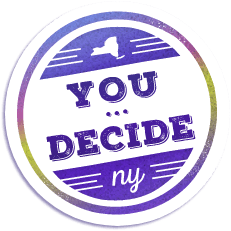Empowering Youth Against Gambling: The Importance of Media Literacy
In today’s digital landscape, young people encounter a multitude of gambling advertisements. The impact of these messages on their gambling behaviors is significant. To combat this, we need to empower our youth with critical thinking skills and the ability to make informed choices. Media literacy is a vital tool in preventing youth gambling and youth, young adults, parents and community influencers can all play a part in empowering youth and young adults.
Understaning Youth Gambling and Media Influence
Digital Challenges: With smartphones and the internet at their fingertips, young people are constantly exposed to ads, social media, and online gaming that may promote or normalize gambling.
Misleading Messages: Many gambling ads glamorize the activity, presenting it as exciting and potentially profitable while downplaying the associated risks and consequences.
Peer Influence: Youth are not just influenced by ads; their peers play a significant role as well. Social media often showcases friends or influencers participating in gambling, further normalizing the behavior.
The Role of Media Literacy
Media literacy involves the ability to analyze and interpret media messages, including advertisements, entertainment, and social media posts. Here’s how it can help combat youth gambling:
Identifying Persuasion Techniques: Teach young people to recognize persuasive tactics in gambling ads, such as emotional appeals and celebrity endorsements that portray gambling as a path to social success.
Encouraging Critical Thinking: Foster discussions about media bias. Help youth understand that advertisers often have financial motives behind promoting gambling.
Evaluating Risks: Media literacy empowers youth to assess the risks and consequences of gambling, enabling them to make informed choices.
Promoting Digital Literacy: By educating young people about the intention and data collection behind targeted ads, we can empower them to navigate the digital landscape more effectively.
How YOU can take action
Youth
Media literacy is a powerful tool to understand why an ad is created, how it’s created to seem enticing, and whether or not the message is truthful. Learning how advertisers use words, colors and images can help understand more about each advertisement.
You can empower yourself by learning more about media literacy. Understanding how ads affect everyone is important for you to make the best decisions for yourself.
Young Adults
Engage with Advertisements: When you come across gambling ads, think about their message. Verify the information in each ad and think about how it may include misleading information. Ask yourself: how does this misleading information effect people’s decisions?
You can empower yourself! If you’re in college, look for a media/advertising class. Learning the tools used in advertising can help further develop your media literacy.
Parents
You can make a difference! Insights from youth advisory committees, such as those organized by the New York Council on Problem Gambling, reveal that young people aged 12 to 24 often look to their parents for guidance.
You can guide them by fostering critical thinking, encouraging open dialogue, and promoting responsible media consumption. Hence, empower youth to make informed decisions and resist the allure of gambling ads. This way, we help safeguard their well-being and empower them to choose wisely.
Community Influencers
Create a safe space for young people to discuss gambling-related content. Encourage questions and promote critical thinking about the advertisements they encounter.
Work with youth to create counter-advertising. This can further develop their media literacy skills as they learn how to use media, true facts about gambling, and how to be a leader. Through your guidance, youth can influence their peers and local community.
Help and Support
Gambling advertisements have a direct effect on the choices all viewers make regarding their gambling behavior. If you know someone who is or has been influenced by gambling advertising, you are not alone.
If you find yourself struggling with gambling harm, or if you suspect someone you know is facing such challenges, don’t hesitate to seek help. For 24/7 support, call the NYS OASAS HOPEline at 1-877-846-7369 or text 467369. Or choose your county using our interactive map on our NYProblemGamblingHELP.org HOME PAGE to see the contact information for the Problem Gambling Resource Center (PGRC) in your region.
